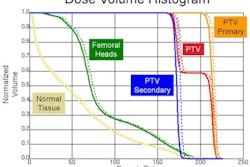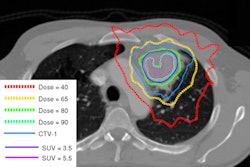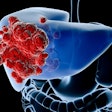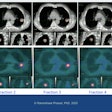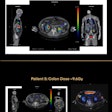Dear Radiation Oncology Insider,
Cancer patients facing radiation therapy have many questions about the risks and benefits of the treatment they're about to receive. What will the treatment do to me? Is it worth the cost, whether financial, physical, or both? Risk is a big issue to cancer patients, and rightly so. Doctors don't live with the consequences, but patients and their families do.
Making radiation therapy safer with fewer downstream consequences is the focus of a number of articles highlighted in this newsletter. First, we bring you an article on the North Shore-Long Island Jewish Health System, where the radiation therapy department has created a "no-fly" safety protocol adopted from the airline industry. Sound intriguing? Click here if you haven't yet read about this; it has attracted reader inquiries.
Also, learn how PET/CT is being used to increase radiation dose to non-small cell lung cancer tumors without damaging nearby organs, according to a study presented at the recent European Society for Therapeutic Radiology and Oncology (ESTRO) meeting. Also from ESTRO, we bring you an article on new developments in managing patient motion, courtesy of MedicalPhysicsWeb editor Tami Freeman.
From the American Brachytherapy Society (ABS) annual meeting, contributing writer Marty Graham reported on how penile bulb trauma can be avoided during prostate cancer treatment, and how implants can be preserved for some breast cancer patients.
Speaking of breast cancer treatment, two large studies, one presented at the American Society for Clinical Oncology (ASCO) annual meeting and the other at ABS, have found that a steadily increasing number of women having breast conservation surgery are willing to take the risk that brachytherapy is as effective as conventional treatment.
But in our Insider Exclusive, Dutch researchers who more than a decade ago pioneered the largest randomized clinical trial to determine the effectiveness of preoperative radiotherapy for patients with rectal cancer are now questioning the value of this treatment for some patients. You won't want to miss reading about their final report of this landmark study.
Enjoy the summer, and remember to check in with your Radiation Oncology Digital Community!




